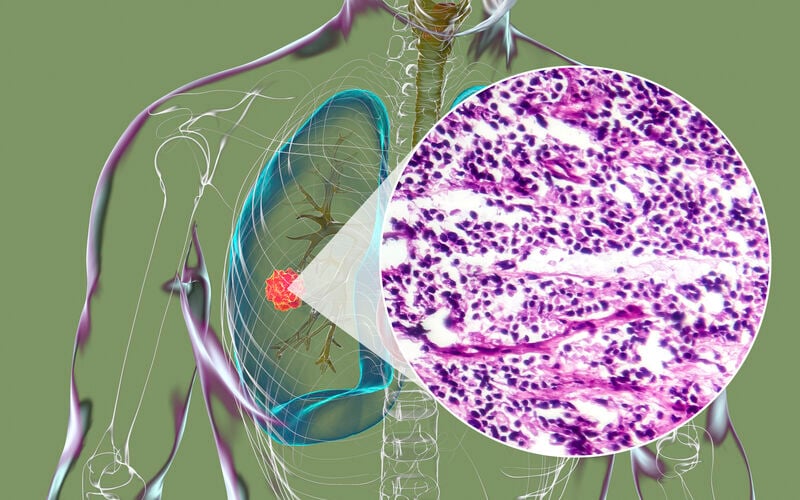27 October 2025 | Monday | Reports

- Robust responses observed in heavily pre-treated patients with a 68% ORR for 1.6 mg/kg in second-line setting
-Compelling activity in patients with baseline brain metastases (n=32), including an 80% ORR for patients without prior brain radiotherapy
- Duration of response of 6.1 months across all doses and all lines of therapy; enrollment continuing for 1.2 mg/kg and 1.6 mg/kg, with nearly half of responders ongoing at data cut-off
- Potential best-in-class safety profile with a low rate of Grade ≥3 TRAEs and no discontinuations in the 1.6mg/kg cohort
- Global Phase 3 trial, ZL-1310-003, has initiated in second-line plus small cell lung cancer (SCLC); first-line SCLC and neuroendocrine carcinoma programs advancing toward registrational phase in 2026
-Zai Lab Limited announced updated data from the global Phase 1 clinical trial of zocilurtatug pelitecan (zoci), formerly known as ZL-1310, (NCT06179069) demonstrating robust and durable responses in heavily pre-treated patients with extensive-stage small cell lung cancer (ES-SCLC). This data will be presented as an oral presentation and was included as part of the press program at the AACR-NCI-EORTC International Conference on Molecular Targets and Cancer Therapeutics, held October 22–26, 2025, in Boston, Massachusetts.
“The strong and durable antitumor activity we have observed with zoci, alongside a well-tolerated safety profile, highlights its potential to be a best-in-class, DLL3-targeted antibody-drug conjugate for small cell lung cancer,” said Rafael G. Amado, M.D., President, Head of Global Research and Development, Zai Lab. “Advancing this program from Phase 1 to a global, registrational study in less than two years reflects the speed, scientific rigor, and executional excellence of our team, and marks a major milestone for Zai Lab as we advance our global programs. Furthermore, we are rapidly expanding zoci’s development into other areas of high unmet need, including first-line small cell lung cancer and neuroendocrine carcinoma, both expected to enter the registrational phase next year.”
The presentation includes updated results from the Phase 1 monotherapy dose escalation and dose expansion portion of the study from 115 patients across six dose cohorts (0.8 mg/kg, 1.2 mg/kg, 1.6 mg/kg, 2.0 mg/kg, 2.4 mg/kg, and 2.8 mg/kg) as of the data cut-off date of September 15, 2025. 102 patients had the opportunity of at least one post-baseline tumor assessment per Response Evaluation Criteria in Solid Tumors version 1:1 (RECIST v1.1).
All patients in this multicenter study had progressed following platinum-based chemotherapy, and 90% of patients had progressed after immune checkpoint inhibitors. Of all patients, 44% had failed two prior lines of therapy, making this a highly pretreated population with limited therapeutic options. Eleven patients received a prior DLL3 bi-specific antibody. A total of 32% of patients had brain metastases at baseline. This study included patients in the United States, Spain, and China.
Key efficacy results include (n=102):
Key safety findings include (n=115):
“DLL3 represents a validated target in extensive-stage small cell lung cancer, where there is high need for new therapies given the disease’s aggressive nature and limited treatment options,” said Grace Dy, M.D., Roswell Park Comprehensive Cancer Center, Buffalo, NY, and study investigator. “These new Phase 1 results for zoci, including data that show rapid and sustained responses among the patient population, especially those with poor prognostic factors, are the latest clinical evidence that further demonstrate zoci’s potential as a differentiated, DLL3-targeted ADC.”
Global Phase 3 Registrational Study Opens for Patient Enrollment
The Phase 3 registrational clinical trial of zoci is a multicenter study that will enroll approximately 665 patients globally, including in North America, Asia, and Europe. The randomized, open-label study is designed to further evaluate the safety and efficacy of zoci compared to investigator’s choice single agent therapy (ICT) in patients with relapsed SCLC who have progressed on or after platinum-based first-line therapy as second-line therapy or one line of chemotherapy followed by tarlatamab. The primary endpoints are ORR assessed by Blinded Independent Central Review (BICR) per RECIST v1.1 for interim analysis and overall survival as the primary analysis. Secondary endpoints include duration of response, progression-free survival and safety.
© 2026 Biopharma Boardroom. All Rights Reserved.